The MeToo changemakers, a Blind Date update and other Weekend stories | World news
In January, we reported on the men and women shaking up their industries in the wake of the #MeToo scandal. Since Martha Hayes spoke to campaigners in the film industry, progress has been made: in collaboration with its US and Europe sisters, Time’s Up UK has persuaded film festivals including Cannes, Venice and Toronto to sign the 5050 x 2020 pledge to increase female representation in film. In theatre, Royal Court artistic director Vicky Featherstone has continued to push for change, as Hannah Ellis-Petersen reported. In 2018, 50% of the plays at the Royal Court were by women; the upcoming spring 2019 season features seven plays, five of them by women, four of whom are women of colour making their Royal Court debuts.
Meanwhile, Simon Hattenstone reported on cleaning up UK sport. In July, Goldie Sayers was finally awarded her bronze medal in the javelin from the 2008 Olympics, after Russian silver medallist Mariya Abakumova tested positive for drugs during a re-analysis of her sample.
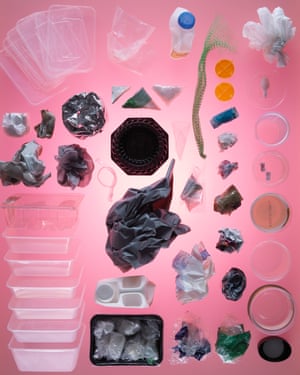
In February, we challenged four writers to give up plastic for a week. Stuart Heritage was getting through a mountain of nappies, and bought a SodaStream to try to reduce the number of plastic water bottles he used. His town now has a packaging-free shop, so his rice, pasta, spices and salt doesn’t even touch plastic. “Best of all,” he says, “one of our children poos in the toilet now: landfills of Britain, you are welcome.” Ian Jack, meanwhile, has now cut back on the takeaways and goes out for Chinese, Indian and Vietnamese: “Yes, we’ve cut back on the takeaways, and most of them these days are from a pizza place, that packs its pizzas in plain brown cardboard boxes that look very recyclable. If we want Indian, Chinese or Vietnamese food, we go out and eat it, though a favourite local Chinese takeaway, Zing Zing, now promises in its online manifesto that “most of our containers are recyclable and come from a supplier that uses socially responsible techniques during the manufacturing process.” Maybe more takeaways could adopt this practice. A lot of stuff in our refuse bins is still plastic, of course – bottles for shampoo, bathroom cleaner and so on – but I think less than before.
Earlier that same month, Hattie Garlick reported on a scheme at Dartmoor prison, training inmates in mediation to encourage non-violent communication. Since then, the scheme has expanded – it now has 12 facilitators, six of whom are full time – and plans to expand to another wing next year. According to Maria Arpa, who is leading the project, staff have noticed that the Dialogue Road Map she introduced has increased safety on the wings for prisoners and staff.
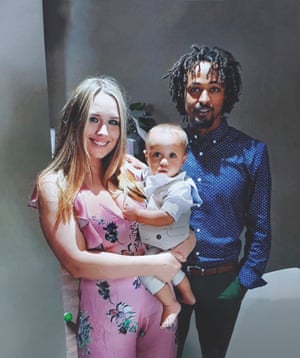
In April, John Harris wrote about families who have been separated by visa restrictions introduced by Theresa May during her time at the Home Office. The rules mean that if you meet someone abroad and want to live with them in the UK, you must be earning at least £18,600 a year; the result is that around 15,000 children are thought to be living without one of their parents.
Laura Clarke, who lives in Rugby with her son Elijah, is still fighting to be reunited with his father, Biniyam, who is stranded in Ethiopia. Under “exceptional circumstances” rules, she has once again applied for a visa for him, and spent thousands of pounds in the process. “Both Elijah and I have not seen Biniyam since early October 2017,” she says. “He’s missed another birthday and now he’ll miss another Christmas.”
Tom Shelton went through a painful period in County Durham, while his wife Annie and her son were forced to remain in the Philippines. In October, he left the UK for six months to rejoin his family. “It’s great to be together again,” he says. “Wonderful and worrying at the same time. In the UK, Annie would earn more than £20k a year, but here she gets £7 a day: a good salary locally, but it just covers rent and food. There’s no ability to save.”
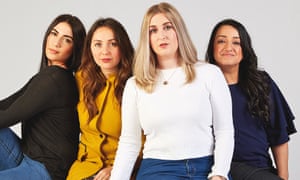
Sally Williams’ report in May on women who carried the BRCA mutation, a gene that dramatically increases the risk of getting ovarian or breast cancer, encouraged more women to sign up for a study that Daniel Reisel, coordinator of the BRCA research clinic at University College London, had recently launched. Called BRCA Unite, supported by the gynaecological cancer charity the Eve Appeal, it is investigating what saves some women with the mutation and why.
Our interviewees’ lives have also moved on. Parm Nagra, 40, who developed breast cancer while pregnant with her daughter, who is now aged six, has had her ovaries and fallopian tubes removed. “I’m nine weeks post-operation and feel a huge sense of relief,” Nagra says. “My gene test gave me a personal risk of developing ovarian cancer of 60% and of developing breast cancer again of 65%.” Rose Hale, 34, is scheduled to have a preventive mastectomy and reconstruction in February, after months of difficulty getting a referral. And Rebecca Nutley, 28, who had a preventive double mastectomy in 2017, is “happy to say I am five months pregnant. After the pregnancy, I will have my ovary removed.”
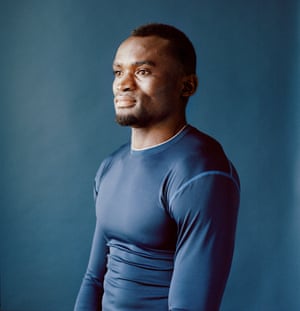
In May, Diane Taylor wrote about Jimmy Thoronka, a sprinter from Sierra Leone who three years ago was homeless and living in a park, after vanishing following the Commonwealth Games in Glasgow. Thoronka was finally granted discretionary leave to remain in the UK for two and a half years this April. He continues to train at the Mile End track in east London and is being coached by Lloyd Cowan and Clarence Callender. He is also working for Sainsbury’s, coaching children, and hopes to complete a course in personal training next year. He still lives with Taylor and her partner, Simon Hattenstone.
Rupert Neate reported in May on the deaths of three young Britons while working for billionaires on multimillion-pound superyachts . Since then, at least two more crew members have died, including Rebecca Boyle, 32, a stewardess from London, who died on the Italian riviera this summer. A coroner found that Boyle died of injuries sustained when she fell on her way back to her cabin from the yacht’s hot tub. Meanwhile, the 40-strong crew of the Indian Empress – a $95m superyacht owned by former Formula One team owner Vijay Mallya – were awarded more than £700,000 in back pay, more than a year after Mallya abandoned the yacht and crew in Malta following his arrest on £1bn fraud charges.
In July, Jonathan Watts and photographer Thom Pierce profiled seven environmental activists risking their lives to protect land around the world. In November, there was good news for Nonhle Mbuthuma: after a long and, at times, violent struggle against powerful mining interests, the Amadiba campaigner and her community won a landmark legal case in the South African high court. The judge ruled that the government must have permission from local people before it can offer mining concessions. Elsewhere, many activists continue to face enormous and often deadly dangers.
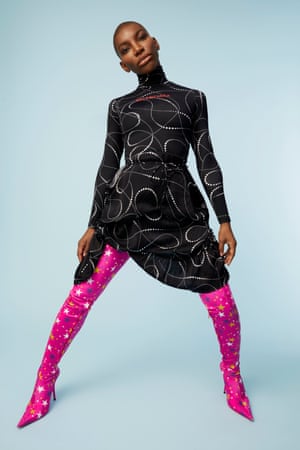
On August 11, Weekend published a gal-dem magazine takeover, in which every byline, photograph and illustration was contributed by a woman or non-binary person of colour. That weekend saw an extra 7,000 copies of the newspaper sold; an additional 500 copies of the magazine made available through the Guardian Bookshop (a first) sold out in days. gal-dem editor and deputy editor Liv Little and Charlie Brinkhurst-Cuff say the issue felt like “a defining moment in becoming a fully fledged business.It’s often the first thing people want to talk to us about”.
In the same issue, Georgina Lawton reported on DNA home testing, since when she has discovered that her biological father was probably Nigerian. As for Kimberly McIntosh and her search for a “woke man”, the hunt continues. She reinstalled Tinder, but “it’s as barren a wasteland as it was the year before”, she says. “Highlights include an ‘ethnic garment enthusiast’ and a guy whose tagline is ‘Wakanda Forever and can cook jolof [sic] rice’, apparently to indicate he likes black women. I deleted the app when two guys in a row had a picture of themselves surrounded by children from ‘insert name of African country here’.” She will renew her search in 2019.
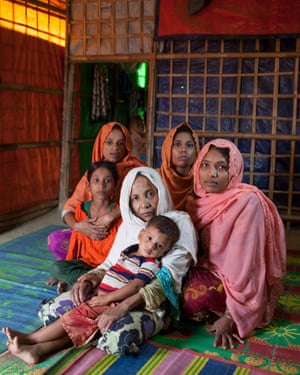
In September, Sally Williams reported on the family of Nur Begum, who are among the million Rohingya refugees sheltering in the world’s largest refugee camp in Bangladesh. The family is now facing its second winter in the camp. The Bangladeshi government announced it would begin repatriations to Myanmar in November, but the transport buses remain empty. “There is likely to be a further push next year,” a spokesperson from Oxfam says. “It’s clear that it’s not safe for refugees to go back, and there’s little progress on granting them the equal rights that they want.”
Nur has since become unwell. “She has a cough,” her daughter-in-law Zaheda says, “so she is staying close to the camp’s medical centre.” But there was good news for Rashida, 25, Nur’s youngest daughter, and a mother of four, who had been abandoned by her husband Jamir: he has since returned. “They are happy,” Zaheda says, “and I am feeling happy about that. I long to go home, but we are afraid of what could happen to us in Myanmar.”
In September, writer Dina Nayeri went to Katsikas refugee camp in Greece with Refugee Support, to report on how the charity is trying to revolutionise the way camps distribute aid. Since their visit, Katsikas has doubled its capacity to 1,000 refugees; after adjusting to the number of new arrivals, the mini-market that Refugee Support opened there is thriving. It launched a pilot Empowerment Fund in July, where it asked people in the camp for business ideas to promote self-sufficiency – it has so far funded 12 ideas, from bike hire to pie making.
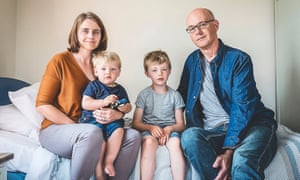
Joe Hammond wrote about his terminal diagnosis of motor neurone disease, and why he is writing cards and letters for his young sons to open on their birthdays after his death. He has now completed 26 of his planned 33 cards, typing the final seven after the weakness in his right hand made his handwriting illegible. “My body is failing fast, but life remains richer than it ever did before,” Hammond says. Since the article appeared, he has corresponded with a huge number of Guardian readers who lost a parent as a child, while 4th Estate publishers bought world rights to the book. Hammond can now do very little for himself; in January, he will have a feeding tube fitted.
Also in September, Anna Moore told the story of Sally Challen, who is appealing her life sentence for murdering her husband on the grounds that she was a victim of coercive control throughout their marriage. Sally’s hearing has been postponed twice, and is now listed for February 2019, more than two years since Sally’s grounds for appeal were originally submitted. Sally’s son, David Challen, describes the wait as “excruciating”.
Meanwhile, on 22 November, Justice for Women – the campaigning group behind Sally’s case – won leave to appeal for Emma-Jayne Magson, who is also serving a life sentence for killing her partner.

In October, Jess Cartner-Morley reinvented her column to reflect the new eco-aware mood in fashion. She was, she admits, anxious about how the piece would be received. “I worried that the truly ethical would shoot my efforts down for not being rigorous enough, because I still buy and recommend new clothes, as well as championing ‘shopping’ from your existing wardrobe. Also that my front row crew would drop me, Mean Girls-style, for being photographed in clothes that cost £30 a decade ago.” But the reaction was overwhelmingly positive. “Some of my favourite responses were from fashionistas who confided that they were cutting down on new purchases, too.”
Josh Jacobs revealed the abuse and misuse of MPs’ staffers in October. Since the article appeared, the House of Commons announced that Gemma White QC will launch an independent investigation into Westminster work culture. Jacobs has received calls and messages from yet more staffers and their families, telling stories of being demeaned by their bosses.
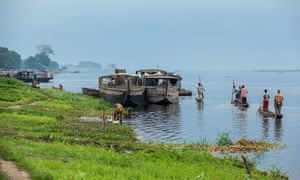
In November, Sarah Boseley and David Levene reported on how the Democratic Republic of Congo is stamping out sleeping sickness. the same month, the European Medicines Agency approved fexinidazole, the first simple oral pill for the disease that used to kill thousands and for which, until a decade ago, the main treatment was drugs derived from arsenic. It will transform prospects for those infected by the bite of the tsetse fly and could help eradicate the disease by the WHO target date of 2020. It’s a triumph for the Congolese doctors and their government programme, and for the Drugs for Neglected Diseases Initiative.

And what of our Blind Date couples? We ran some numbers on this year’s columns and found that the average dater scored their evening an impressive 7.93 out of 10. There were kisses shared on eight dates; and six people awarded their date a perfect 10.
We asked all our daters what happened next; of those who replied, at least four couples made it to a second meeting. MA student Sophie and solicitor Emily’s date in July has blossomed into a full-blown romance. “We had a second date before the article was even published and have been seeing each other ever since,” Emily says. Meanwhile, illustrator Lizzie and book editor Tom gave each other full marks in May 2017 – and announced their engagement in April this year. “We are so grateful as we would never have met otherwise,” Lizzie says. “We’re very, very happy.” They have invited Nina Trickey, Weekend’s cupid, to the wedding.
While other dates didn’t lead to love, they did have life-changing consequences. Both Laura, a digital marketing manager, and Richard, an employment lawyer, used their moment in the spotlight to come out of the closet. “I had a hugely positive response,” Richard says. “It lifted a massive burden from my shoulders. It’s one of the best things I’ve done.”
Want to find love next year? Email blind.date@theguardian.com
• Commenting on this piece? If you would like your comment to be considered for inclusion on Weekend magazine’s letters page in print, please email weekend@theguardian.com, including your name and address (not for publication).

